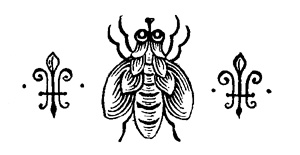Transcriber's note:
Inconsistent hyphenation and spelling in the original document havebeen preserved. Obvious typographical errors have been corrected.
Any page numbers lacking are those given to blank pages in the original text.

NAPOLEON'S LETTERS
TO JOSEPHINE
"When all the lesser tumults, and lesser men of our age,
shall have passed away into the darkness of oblivion,
history will still inscribe one mighty era with the majestic
name of Napoleon."—Lockhart (in Lang's "Life and
Letters of J. G. Lockhart," 1897, vol. i. 170).
NAPOLEON'S LETTERS TO JOSEPHINE
1796-1812
FOR THE FIRST TIME COLLECTED AND
TRANSLATED, WITH NOTES SOCIAL,
HISTORICAL, AND CHRONOLOGICAL,
FROM CONTEMPORARY SOURCES
BY
HENRY FOLJAMBE HALL
F.R.Hist.S.

1901
LONDON: J. M. DENT & CO.
NEW YORK: E. P. DUTTON & CO.
Printed by Ballantyne, Hanson & Co.
At the Ballantyne Press
PREFACE
I have no apology to offer for the subject of this book, in viewof Lord Rosebery's testimony that, until recently, we knewnothing about Napoleon, and even now "prefer to drink at anyother source than the original."
"Study of Napoleon's utterances, apart from any attempt todiscover the secret of his prodigious exploits, cannot be consideredas lost time." It is then absolutely necessary that weshould, in the words of an eminent but unsympathetic divine,know something of the "domestic side of the monster," firsthand from his own correspondence, confirmed or corrected bycontemporaries. There is no master mind that we can less affordto be ignorant of. To know more of the doings of Pericles andAspasia, of the two Cæsars and the Serpent of old Nile, of MaryStuart and Rizzio, of the Green Faction and the Blue, of Orsiniand Colonna, than of the Bonapartes and Beauharnais, is worthyof a student of folklore rather than of history.
Napoleon was not only a King of Kings, he was a King ofWords and of Facts, which "are the sons of heaven, while wordsare the daughters of earth," and whose progeny, the Genii of theCode, still dominates Christendom.[1] In the hurly-burly of theFrench War, on the chilling morrow of its balance-sheet, in theJanus alliance of the Second Empire, we could not get rid of thenightmare of the Great Shadow. Most modern works on theNapoleonic period (Lord Rosebery's "Last Phase" being abrilliant exception) seem to be (1) too long, (2) too little confinedto contemporary sources. The first fault, especially ifmerely discursive enthusiasm, is excusable, the latter pernicious,VIfor, as Dr. Johnson says of Robertson, "You are sure he doesnot kn